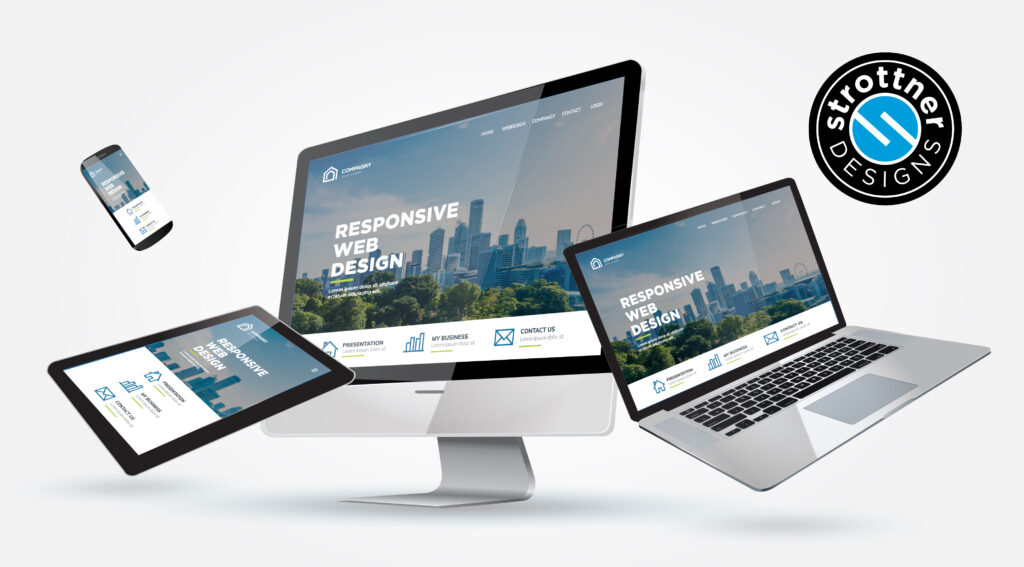The Crucial Role of Responsive Design for Small Businesses in 2024
Small businesses are continually faced with the challenge of staying relevant and competitive. If you were to choose any of our past posts at random, it’s likely that you’d find us saying that one of the key strategies for success in this realm is maintaining a strong online presence. At the heart of this presence lies responsive website design. This year, at a time when 63% of searches in the US take place on mobile devices, the importance of responsiveness cannot be overstated; it’s not just a trend but a necessity for businesses striving to thrive in the digital age.
The Rise of Mobile Devices

The proliferation of smartphones and tablets has revolutionized how people access the internet. Today, more than ever, users are browsing the web on various devices with different screen sizes and resolutions. As a result, websites must adapt to these diverse platforms to provide a seamless user experience.
User Experience Matters
In the competitive online marketplace, user experience (UX) plays a pivotal role in determining the success of a website. A responsive design ensures that visitors can effortlessly navigate and interact with your site, regardless of the device they’re using. Whether it’s a desktop computer, a smartphone, or a tablet, users expect a consistent and user-friendly experience across all platforms.
Search Engine Optimization (SEO) Benefits

Search engines like Google prioritize mobile-friendly websites in their rankings. By embracing responsive design, small businesses can improve their visibility in search engine results pages (SERPs), ultimately driving more organic traffic to their site. Furthermore, maintaining a single responsive website is more efficient than managing separate desktop and mobile versions, streamlining the SEO process.
Adaptability to Changing Trends
In so many of our posts, we begin our introductory paragraph by referring to the fast-paced digital landscape, almost to the point of hackneyed cliche. It doesn’t change that fact that it phrase is accurate, and that technology and design trends are constantly evolving. Responsive websites are inherently flexible and adaptable, making them well-suited to accommodate future advancements in web development. By investing in responsive design now, small businesses can future-proof their online presence and avoid the need for costly redesigns down the road.
Enhanced Brand Reputation
A well-designed and user-friendly website reflects positively on your brand. In contrast, a website that is difficult to navigate or fails to function properly on certain devices can leave a negative impression on visitors. By prioritizing responsiveness, small businesses can enhance their brand reputation and build trust with their audience, ultimately leading to increased customer loyalty and retention.
Final Thoughts on Responsive Design
In 2024, responsive website design is no longer a luxury; it’s a fundamental requirement for small businesses looking to succeed in the digital realm. By prioritizing responsiveness, businesses can improve user experience, boost search engine rankings, adapt to changing trends, and enhance their brand reputation. In essence, responsive design isn’t just about keeping up with the competition; it’s about future-proofing your online presence and positioning your business for long-term success. So, if you haven’t already embraced responsive design, now is the time to make it a top priority for your small business. Consider contacting us at support@strottner.com today, to see how your site performs, or consider a free audit using the tool on our homepage!







